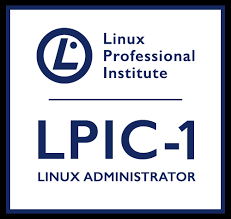
Horas:
Financiación:
Destinatarios:
Prazas
Datas, Horarios e Sesións
Data Inicio
Data Peche
Tipos Formación
Datas e horarios
Número Webinars
Enlace ao curso
Necesidades, prerrequisitos e inf. xeral
Necesidades a cubrir
Prerrequisitos
Carácter
Medios necesarios
Datos persoal Formador e Titor
Persoal formador
Empresa contratada
Titor
Descrición
This course, taught in an online format, has a learning orientation based on practice; the course will provide students with access to tools through which they will carry out a multitude of laboratories and real scenarios proposed throughout the training, both with distributions based on Debian and RedHat.
The course includes 14 webinar sessions, in Spanish, as a complement to the training. In these sessions, the instructor will teach the most important aspects of each chapter, will propose different scenarios, and resolve any doubts raised. The webinars will also be available on the e-learning platform to be viewed by those who cannot attend live.
Competencias a desenvolver
At the end of the course, participants will have the professional skills to perform command-line maintenance, installation and configuration of Linux equipment and configuration of basic network functionalities.
Metodoloxía
Course taught in online mode, based on preparation and personal study "at your own pace" with the support and assistance of the instructor.
There are 14 live webinar sessions, with 1:30h per session. You have the option to interact with the teacher and ask questions interactively. These sessions are recorded, and once each session is over, they are made available to the course participants for deferred viewing.
Student tutored during the five months of access by an instructor.
Free access to the Linux Essentials online course in a self-study format is also offered.
Temario
Module 1. LPI 101- General Linux Part 1
1. System Architecture
1.1 Hardware Selection and Configuration
1.2 Booting the System
1.3 Changing Run Level / Boot Target and Shutting Down or Rebooting the System
2. Linux Installation and Package Management
2.1 Designing the Hard Disk Partitioning Scheme
2.2 Installing a boot loader
2.3 Managing shared libraries
2.4 Debian package management
2.5 RPM and YUM package management
2.6 Virtualisation on Linux
3. GNU and UNIX commands
3.1 Using the command line
3.2 Processing text sequences using filters
3.3 Basic File Management
3.4 Using Streams, pipes and redirects
3.5 Creating, monitoring and killing processes
3.6 Modifying process execution priorities
3.7 Searching for text files using regular expressions
3.8 Basic file editing operations
4. Devices, Linux File Systems and Standard File System Hierarchy
4.1 Creating Partitions and File Systems
4.2 Maintaining File System Integrity
4.3 Mounting and unmounting file systems
4.4 File ownership and permissions management
4.5 Creating and modifying symbolic and hard links
4.6 Searching for system files and placing them in their correct location
Module 2. LPI 102- General Linux Part 2
1. Shells and Shell Scripting
1.1 Customisation and use of the command interpreter
1.2 Customizing and Creating Simple Scripts
2. User Interfaces and Desktops
2.1 Installing and Configuring X11
2.2 Graphical Interface
2.3 Accessibility
3. Administrative Tasks
3.1 Managing user and group accounts and related files
3.2 Automation of system administration tasks through job scheduling
3.3 Localisation and internationalisation
4. Essential System Services
4.1 System timekeeping
4.2 System logs
4.3 Mail Transfer Agent (MTA) basics
4.4 Printing and printer management
5. Networking Basics
5.1 Basic knowledge of Internet protocols
5.2 Basic network configuration
5.3 Troubleshooting network problems
5.4 Configuring a DNS client
6. Security
6.1 Performing System Security Management Tasks
6.2 Configuring the security of a host
6.3 Protecting Data with Encryption



